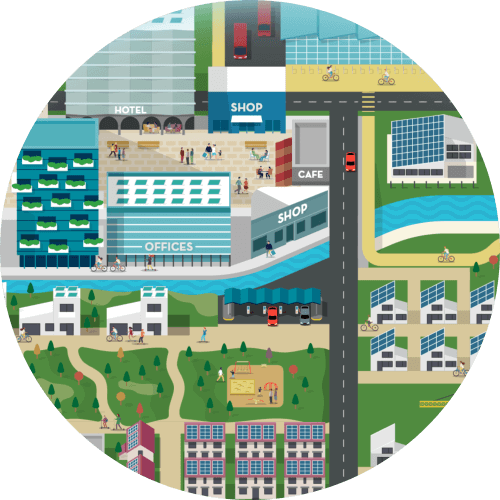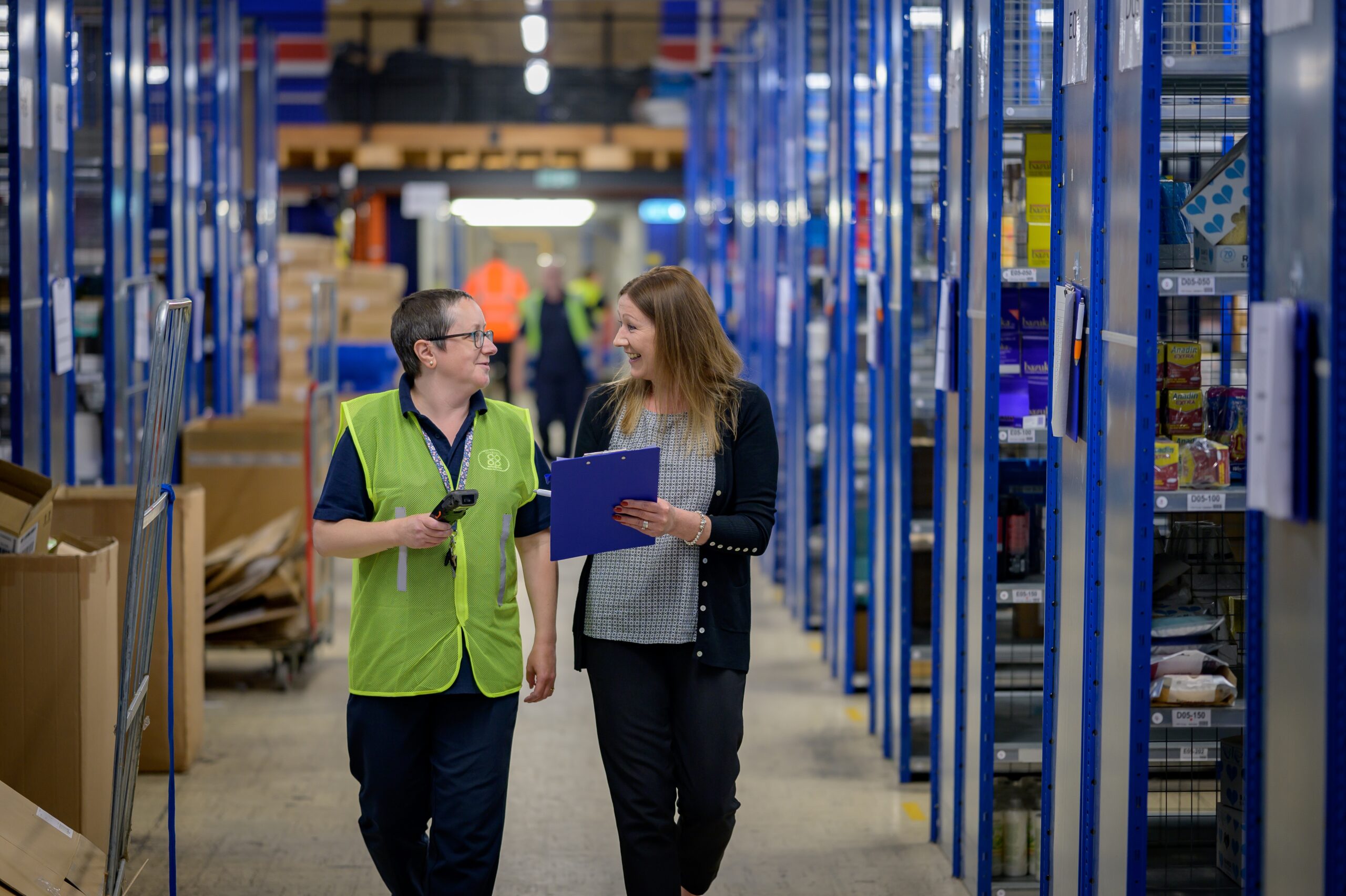A Guide to the SME Climate Hub educational, measurement and reporting tools
Small and medium sized businesses committed to the SME Climate Hub can access an increasing number of tools and resources to begin their climate action journey and move towards net zero.
The first step is making the commitment — to halve emissions by 2030 and to become net zero by 2050 or sooner. Climate action helps small businesses gain a competitive advantage and build resilience: amid shifting policy regulations, changing consumer demands, and global investor and buyer expectations. It’s in the best interest of businesses to start their journey — and to do so today.
The SME Climate Hub helps small businesses deliver on their climate goals. SMEs that have joined the Hub can access a new area of the platform behind a personalized login. Their individualized section offers the latest, most robust tools library, specifically designed for SMEs and tailored to their business and climate goals. The tools library is continually updated for more effective climate education, measurement and reporting, so SMEs can rely on the SME Climate Hub to make strategic and impactful emissions reductions, track their progress, and demonstrate climate leadership.
You’ll find details on these new tools below. Join the SME Climate Hub today to access them – for free – today.
Measure – Normative Carbon Calculator
Industry CO₂ Insights shows you the average emissions from businesses in your sector and country. These emissions are broken down using the scopes defined by the Greenhouse Gas Protocol (GHGP).
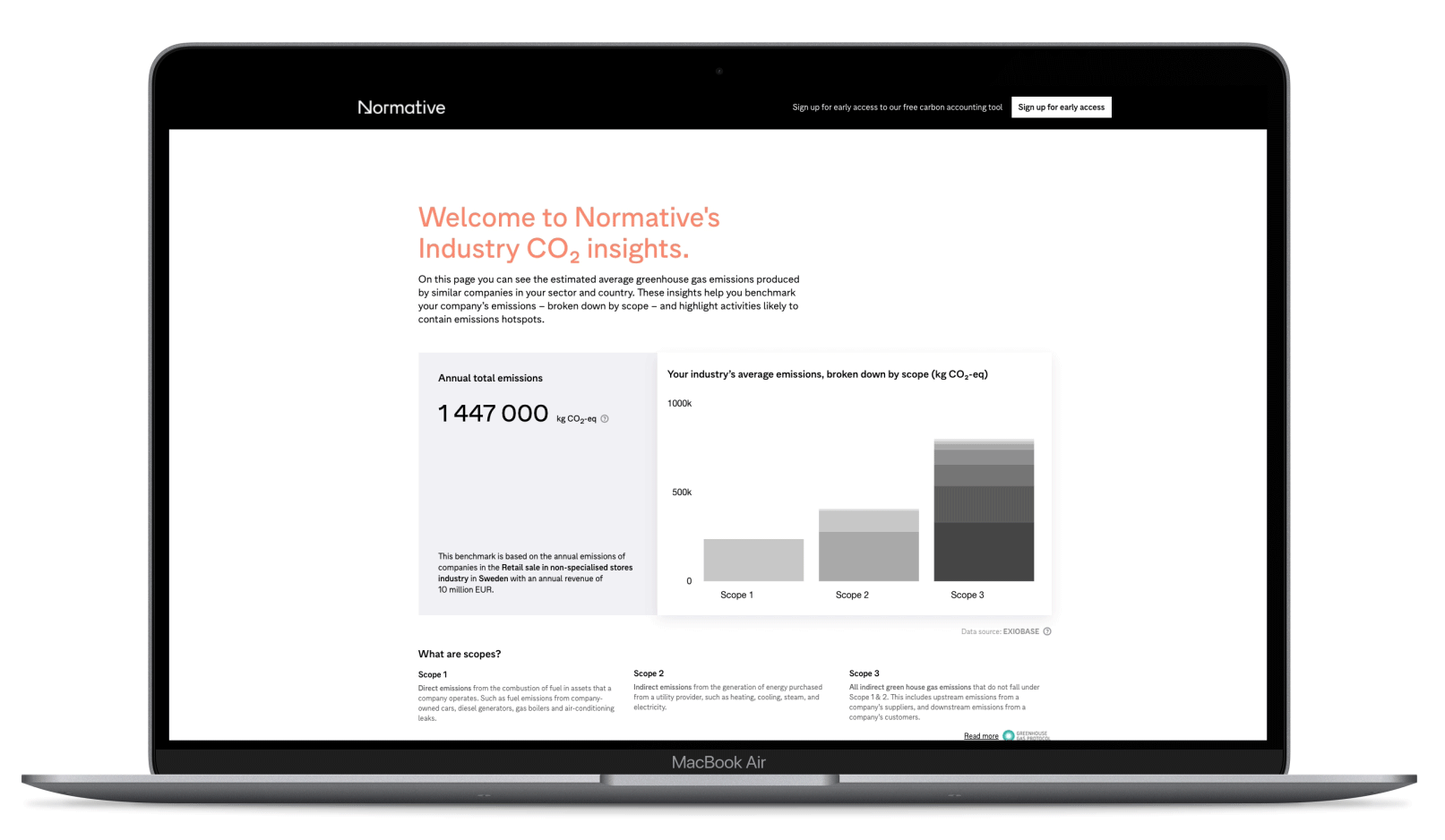
It is the first offering resulting from Normative’s collaboration with the SME Climate Hub and Google.org. Normative is currently developing the next stage: a free tool enabling SMEs to calculate their specific carbon footprints, planned for launch in early 2022. Businesses will be able to use this information to identify possible emissions hotspots in their own carbon footprint and reveal potential high-impact reduction measures. SMEs can sign up for early access in the Industry CO₂ Insights tool.
Make the SME Climate Commitment to access the Normative Carbon Calculator.
Learn – Climate Fit Education Course
Climate Fit is a free online training course to help SMEs reduce their carbon emissions and take action towards the collective race to net zero.
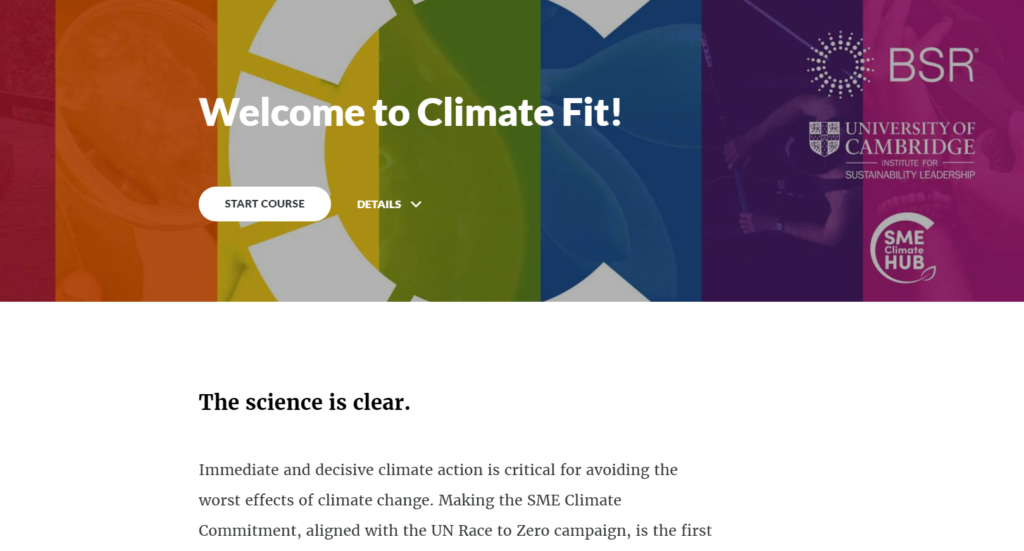
Developed by the University of Cambridge Institute for Sustainability Leadership (CISL) and Business for Social Responsibility (BSR™), Climate Fit offers a step by step training plan delivered over seven core modules:
- Governance and strategy
- Operations
- Supply chain
- Design for net zero
- Finance
- People and community, and
- Net zero storytelling.
Each module takes around 30 minutes to complete and is self-paced, enabling people to learn in their own time. Completing this course will provide SMEs with the practical skills, knowledge and confidence to reduce their carbon emissions, and become part of a global team of SMEs taking action on climate change.
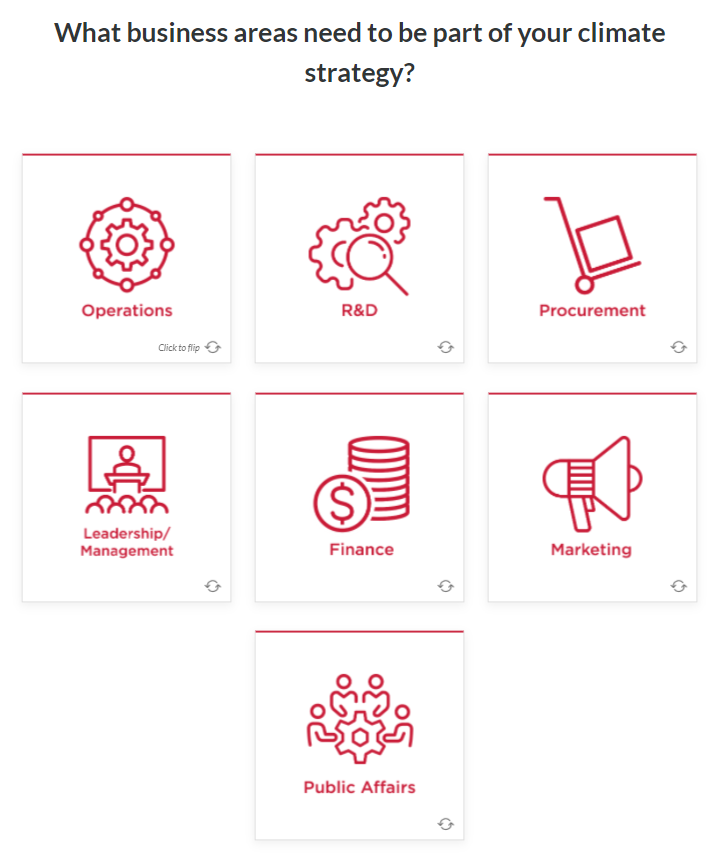
Make the SME Climate Commitment to access this free course.
Report – SME Reporting Framework
In collaboration with the SME Climate Hub, CDP has launched their open Climate Disclosure Framework, to empower SMEs to make strategic and impactful climate commitments, and track and report progress against those commitments.
The framework, specifically tailored to small and medium sized businesses, lays out key climate points which SMEs should report on and use to inform their disclosures. The resource is intended to be simple and flexible — maximizing ambition while reducing the reporting burden.
It’s open for anyone to access and can be used directly by SMEs to guide their reporting of climate impacts and strategies to multiple stakeholders. In early 2022, the Reporting Framework will be translated into an interactive tool on the SME Climate Hub, where committed SMEs will be able to report on their progress.
View the framework here.
Access Support – Financial Support Guide (coming soon)
The SME Climate Hub’s guide to financial support, developed by the University of Cambridge Institute for Sustainability Leadership (CISL) and Business for Social Responsibility (BSR™) , provides an online resource for businesses that lays out available financial support for emissions reduction. The guide includes insight on support from banks and financial institutions, large corporations that buy from SMEs in their supply chains, public institutions like development banks and a host of other players.
In addition to explaining what financial resources might be available, the guide will allow small businesses to learn how to prepare for financial conversations. The resource will also include success stories of businesses that have successfully utilised financial support in order to make investments that both reduced their emissions and enhanced their business.
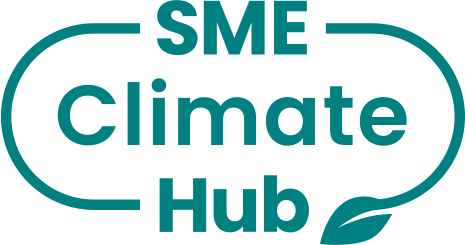
 Go back
Go back

